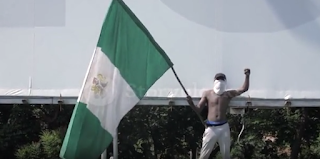The Role of Nigerian Youth in the #EndSARS Movement and its Impact

The #EndSARS Movement is an online protest occurring in Nigeria and in some other countries since October 2020. It has generated a great amount of discussion online, particularly by young Nigerian people, who are the driving force behind the movement. #EndSARS is an acronym for the Anti-Police Brutality Coalition’s Refuse to Submit Campaign. The campaign, initiated by a large number of protesters, calls for the termination of the Special Anti-Robbery Squad (SARS), a notorious police unit that has killed and terrorized Nigerians for decades. The #EndSARS Movement is an online protest occurring since October 2020. The campaign, initiated by a large number of protesters, calls for the termination of the Special Anti-Robbery Squad (SARS), a notorious police unit that has killed and terrorized Nigerians for decades. Supporters of the movement have been organizing online protests, some of which have translated into massive demonstrations across Nigeria. The online organizers of the #EndSARS




